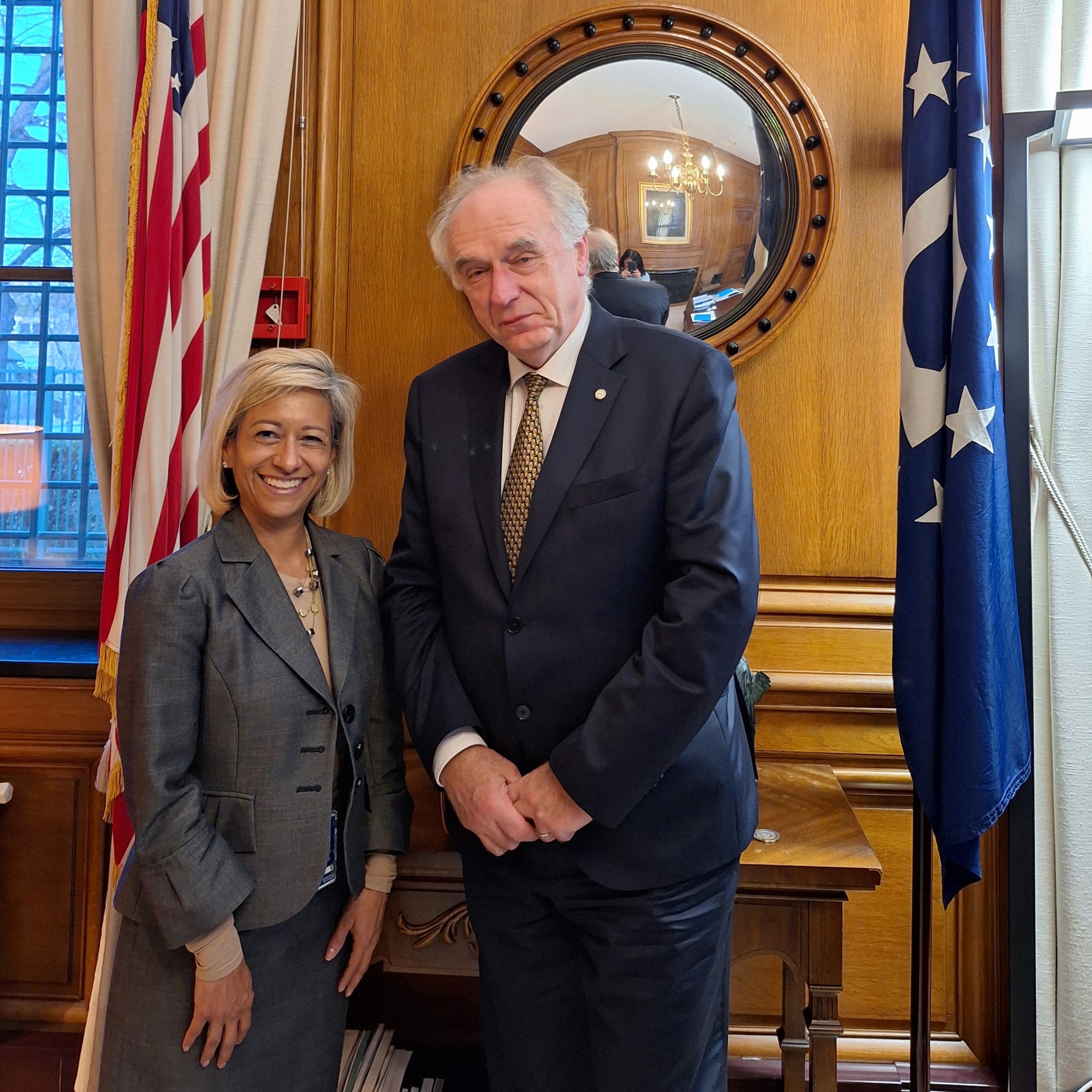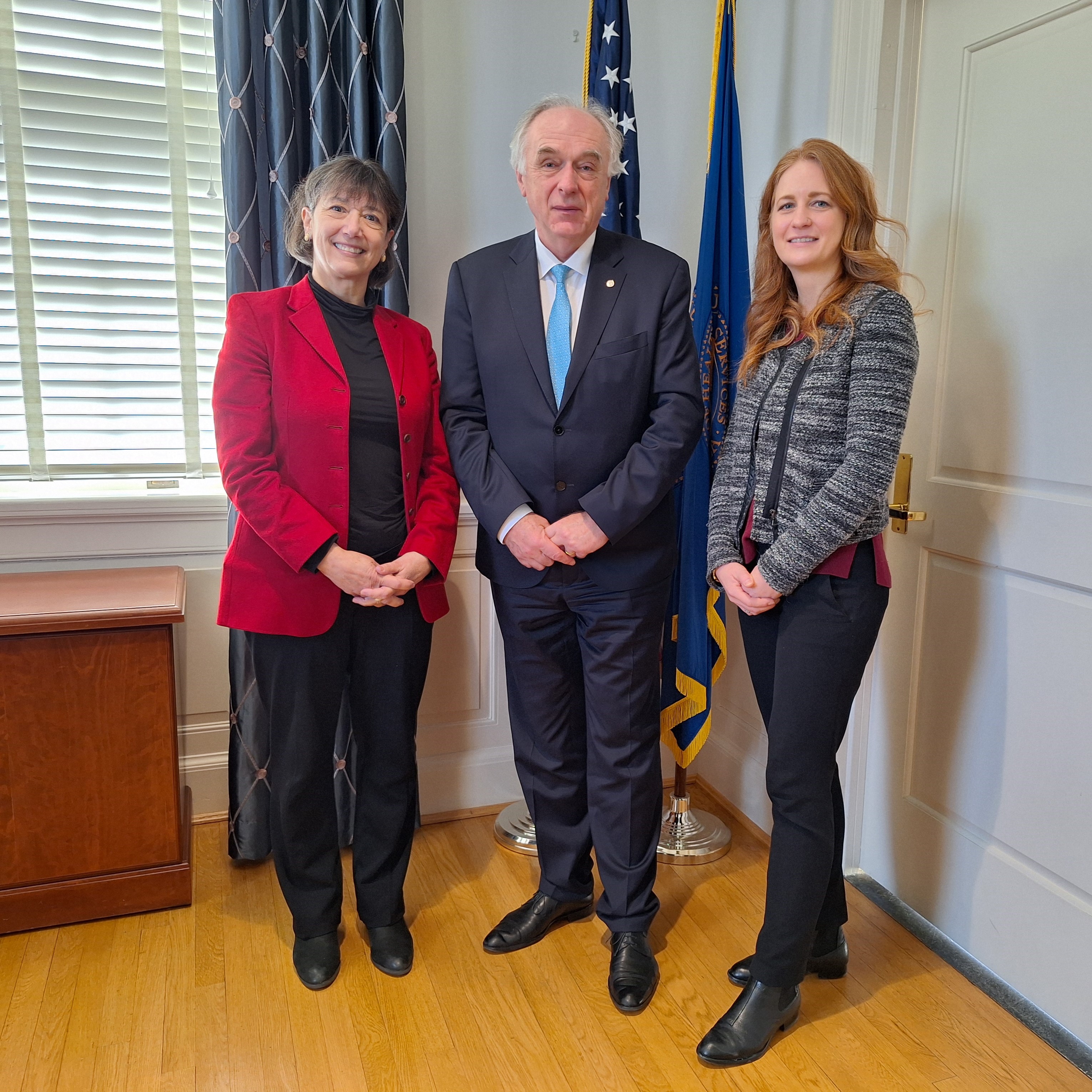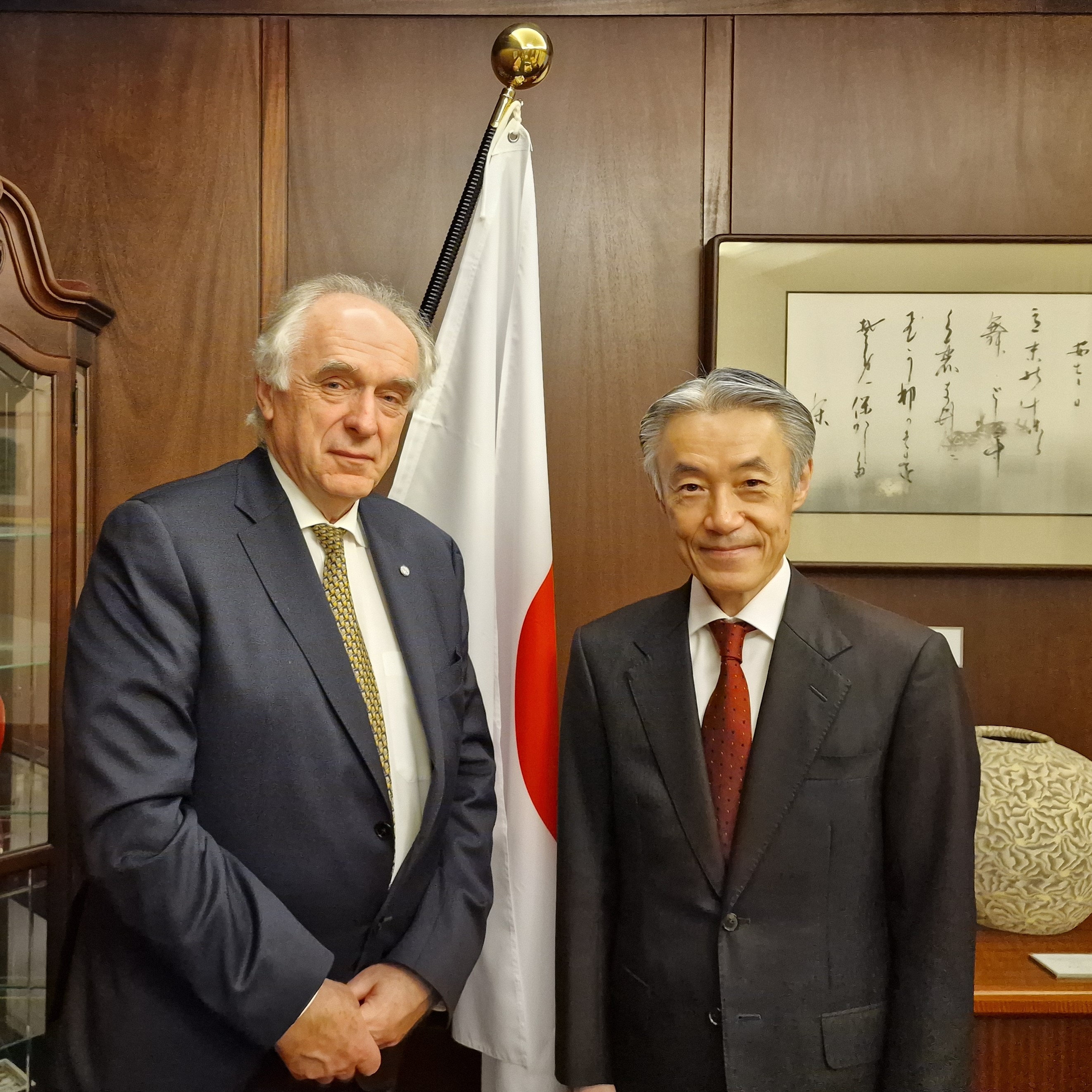He began his conversation close to home by meeting with Yvonne Gonzales, Consul General of the United States of America in Strasbourg, who was appointed in August of 2023. Kabat and Gonzales spoke on a range of issues relevant to HFSP engagement with the United States and important science issues in Alsace, France, where HFSP is headquartered. In May 2024, HFSP will partner with the University of Strasbourg to host its first Frontier Workshop, “Frontier Science at the Interface of Physics and Biology” a cross-disciplinary symposium of physicists and life scientists.

As HFSPO promotes international collaboration through science diplomacy it is fitting to be headquartered in Strasbourg, given the European Commission has its second home in Strasbourg. For 35 years, HFSPO has supported truly pioneering life science research that involves international – and intercontinental – collaboration among the world’s top scientists for the benefit of humanity. The European Commission and HFSPO are active partners, and together they host the Scientists for Scientists Program (S4S) to aid Ukrainian life scientists affected by the war so they may continue their research in laboratories around the world.
The Consul General of the USA in Strasbourg has always been a strong supporter of HFSPO as it plays a unique role in science diplomacy, supporting only the most cutting-edge life science research that is interdisciplinary and bringing together international teams of scientists.
In the second week of February, Kabat traveled to Washington, D.C., where he met with top science administrators of the National Institutes of Health (NIH), the National Science Foundation (NSF), the National Aeronautics and Space Administration NASA), and the U.S. Department of Energy (DOE), and the U.S. Department of State.
The United States is one of the original founding Members of HFSPO and has played a profound role in supporting the organization through its 35-year history. The USA is the second largest contributing Member, the largest recipient of awards, and hosts the greatest number of HFSP fellows; more than 1,300 scientists working in the USA have received HFSP Research Grants at 214 institutions. Likewise, more than 2,100 HFSP Fellows have elected to pursue postdoctoral research at U.S. institutions.
Officials from NSF and NIH hold seats on the HFSPO Board of Trustees (BOT). While in Washington, D.C., Kabat met with NIH Director Monica Bertagnolli and Tara Schwetz, NIH Deputy Director for Program Coordination, Planning, and Strategic Initiatives, who also is an HFSPO Trustee. NIH will be hosting the HFSPO BOT meeting in June on the NIH campus in Maryland. At NSF, Kabat met with the Head of the Office of International Science and Engineering, Kendra Sharp. He held a working dinner with NSF’s Susan Marquesse, who heads the Directorate for Biological Sciences, and has recently joined the BOT as a Trustee. In their conversations, NIH and NSF officials discussed enlarging engagement with HFSPO. In addition, Kabat also visited top officials at DOE and NASA, federal agencies that have worked closely with HFSPO in prior years and which show great interest in again becoming partners.

Kabat’s visits to the NSF and NIH served as important touchpoints in advance of the HFSPO Annual Awardees Meeting, which will be held in June in Washington, D.C., this year. Officials from the NSF and NIH will be prominently featured in a high-level event during the HFSPO Annual Awardees Meeting, which will be held in June in Washington, D.C.
Kabat also met with the Japanese Ambassador to the USA, Shigeo Yamada. Since HFSPO’s inception, Japan has been the biggest supporter of HFSPO.
Yamada assured Kabat that Japan would continue its strong support of the organization, which will be reflected in a special event in June at the Japanese Embassy in Washington, D.C., for attendees of the HFSPO Awardees Meeting. They also discussed strategies for strengthening the alliance between the USA and Japan through science diplomacy and HFSPO channels. BioInnovation continues to be a top priority for Japan.

Science diplomacy has also been an important component for the U.S. State Department in recent years under first the leadership of former Secretary of State John Kerry, who until recently also served as first U.S. Special Presidential Envoy for Climate, and under the current U.S. Secretary of State Antony Blinken, who has come out strongly on the role of science and technology as drivers of innovation. At the U.S. State Department, Kabat met with Patricia Gruber, Science and Technology Adviser to the U.S. Secretary of State to discuss international science diplomacy. In May 2023, global leaders attending the G7 Summit in Hiroshima, Japan, issued a joint communique that placed a high priority on science, particularly basic research, as key to developing new knowledge to address global challenges. In this regard, science plays a central role in international diplomacy.


































